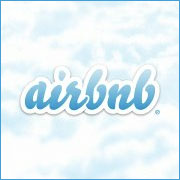
Authentication requirements for some travelers looking for shared accommodations around the world will be getting a little tougher.
Airbnb — which allows people to list, discover and book unique accommodations through a sharing model — announced Tuesday that it will be asking for more personal information from U.S. consumers who want to use its services.
The new program, expected to initially impact 25 percent of U.S. accommodation seekers, is called Verified Identification and is designed to authenticate that a person’s online identity is consistent with who they are offline.
The program requires:
- Confirmation of an online identity through Airbnb reviews, LinkedIn or Facebook;
- Proof of offline identity via confirmation of historical personal information or by scanning a photo ID;
- Matching of online and offline names.
Building Trust
“Access is built on trust, and trust is built on transparency,” said Airbnb Cofounder and CEO Brian Chesky. “When you remove anonymity, it brings out the best in people. We believe anonymity has no place in the future of Airbnb or the sharing economy.”
The company said it will be expanding the Verified Identification program over time. Meanwhile, guests can voluntarily participate in the program.
Airbnb hosts can require that guests participate in the verification program before booking a reservation, the company said. However, hosts who do that will have to verify their identities as well.
Airbnb declined to provide further details.
Dog Vetting
Airbnb is a participant in a growing segment of global business called the “sharing economy.” Players in it provide services that address consumer needs on a microeconomic level — services such as short-term use of an automobile, finding an office for an hour or two, boarding a dog when the family goes on vacation, or joining a car pool.
“Trust is a very important thing because you’re getting into my car, and I’m giving you a ride and I don’t know you,” Lisa Gansky, author of The Mesh: Why the Future of Business is Sharing, told TechNewsWorld.
Trust is good, but it’s no substitute for verification at DogVacay, which connects dog owners going on vacation with dog lovers willing to board a pooch.
The service requires boarders to fill out an extensive online application. It conducts interviews, checks references, provides online training and allows dog owners to do a “meet and greet” with a potential boarding provider. It also offers insurance that covers all parties involved, and round-the-clock support.
“With Airbnb, you’re staying at someone’s house. If you don’t like it, you can leave,” DogVacay CEO, founder and Top Dog Aaron Hirschhorn told TechNewsWorld.
“Your dog is your baby, and you’re dropping it off at someone else’s house, and you’ve got to feel really good about that arrangement,” he said.
They can also save some money in the process. Rates to board a dog at a kennel range from US$50-$60 a night, Hirschhorn said. The average cost for a stay with a DogVacay household is $28 a night.
Millennials Appeal
Although what the shared economy has to offer appeals to anyone looking to save a buck and enrich their experiences, it appears to have a particular appeal to “Millennials.”
“The Millennial generation, who have grown up buying music by the song, has led to a change in attitudes about the sharing economy,” Brian Harrington, executive vice president and chief marketing officer of Zipcar told TechNewsWorld.
Surveys taken by the company show that Millennials value access over ownership, he added.
“Compared to older generations, Millennials participate in and are more open to collaborative consumption programs, such as media, car and home or vacation sharing,” Harrington said. “Increasingly people are valuing experiences over assets — use of a product vs. outright ownership.”
Elements of the sharing economy have always been present in the mainstream economy, but the Information Age has spurred its growth, Gansky said. “Technology is helping to take the friction out of sharing.”





















































